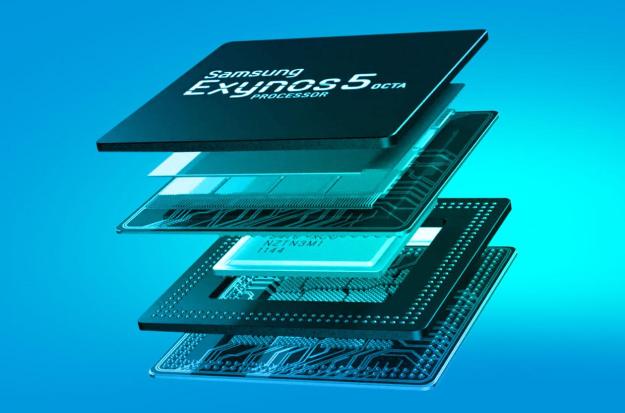 When you buy a PC, do you “need” it to be quad-core? Can you even imagine an eight-core (octa-core) Windows PC? It’s been only a little more than a decade since multi-core technology hit the PC, but after only a three years, the number of ‘cores,’ or processors, in our phones is set to eclipse desktop computing. The first dual-core processor arrived in 2010, and already Samsung has released an impressive eight-core processor with the new International Galaxy S4. But do we really need so many cores on our mobile devices, or is this just for show?
When you buy a PC, do you “need” it to be quad-core? Can you even imagine an eight-core (octa-core) Windows PC? It’s been only a little more than a decade since multi-core technology hit the PC, but after only a three years, the number of ‘cores,’ or processors, in our phones is set to eclipse desktop computing. The first dual-core processor arrived in 2010, and already Samsung has released an impressive eight-core processor with the new International Galaxy S4. But do we really need so many cores on our mobile devices, or is this just for show?
Maybe octa-core phones are just the beginning. At this rate, we’ll be explaining the merits of hexadeca-core processors this time next year.
Yes, ARM claims that the new eight-core processor it designed is actually more efficient than its predecessor, the ARM Cortex quad-core processor (or any comparable Qualcomm Snapdragon processor). This actually means the international version of the S4, which uses the new eight-core technology, is more battery efficient than its U.S. counterpart.
According to ARM, what matters here is not the actual number of cores, but how they are being used and optimized by the smartphone. ARM’s Lead Mobile Strategist, James Bruce, told us that the new octa-core design features both “little cores and big cores” which is what makes the smartphone more efficient. This technology, called BIG.little, is the focus for the company when it comes to building its next generation of processors.

When a non BIG.little smartphone wants to open a webpage, it has to use all of its four cores at different speeds to handle the process of opening a webpage, loading the content, and running all the background processes without slowing down the user experience, or overdoing it and hurting battery life.
While the new eight-core system could do this if it had a simple eight-core design, in reality using eight regular cores and changing their speed in real time is not very efficient. Instead, the BIG.little system decides for each action which core would be better to use: a little core or a big core. Tasks like opening a feature-rich webpage would need a big core to kick in to handle that process, while the smaller cores can handle little things, like checking your email or receiving a phone call. Because these little cores are clocked down compared to the bigger cores used for more intensive tasks, it ensures the smartphone doesn’t waste power and battery life when handling low-demand activities. So, most of the time, battery life actually improves.
If you’re playing the new version fo Modern Combat or doing some other crazy, intense task, the battery life may actually be somewhat less compared to a traditional four-core processor because you’re pushing your new phone to the max. As a result, the new eight-core BIG.little processor is doing things very differently, and it appears to be effectively making a much more efficient smartphone for typical users.
But how much more efficient is the new Galaxy S4 with an eight-core processor compared to the Galaxy S3 with a four-core processor? According to Bruce, an octa-core ARM processor should get 50 – 70 percent better battery life, thanks to the BIG.little design. Not bad.

While this new design is good for ARM, and all the mobile companies that use ARM processors (all of them), it certainly isn’t good for Intel, which routinely takes flak over concerns that its processor designs are too power-hungry. While the company has yet to explicitly show off processors that will be coming to smartphones and tablets, the new Haswell chips – not to mention Clovertrail+ – are both due in the near future. Haswell will be the opportunity for Intel to prove its worth to the mobile space (or show off its Achilles Heel).
The new eight-core chip so far is only on select International Galaxy S4s (sorry U.S. customers), but may be coming to the Galaxy Note 3, and likely a lot more phones later this year and in early 2014.
Though multiple cores still scares the battery lovers in us, based on what ARM is showing, it sure sounds like more cores is the way to go. Maybe octa-core phones are just the beginning. At this rate, we’ll be explaining the merits of hexadeca-core processors this time next year.

